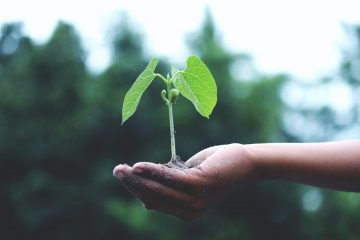This article was contributed by Dimitar Histrov of FCC partner KISMC
In this article, we focus on business response to the challenges and opportunities which are caused by climate change.
Within the framework of the Fight Climate Change Project, we are participating in, a survey was conducted in the period January – March 2022, which aimed to obtain indicative information about the readiness, commitment and needs for doing business or implementing projects in such sensitive thematic areas as “fighting climate change”, “green transition” and “circular economy”. The responses received, while not claiming to be representative, nevertheless contributed to a better understanding of the opportunities and challenges for conducting and doing business in these areas.
Below there is a brief analysis and conclusions from this study;

The survey involved 75 participants from 15 countries, mostly from Europe, who were distributed as follows:
- 57 business representatives – production and consulting companies, suppliers or users of green technologies, services and projects, of which micro-enterprises predominate (36 companies with a staff of up to 9 people), 17 SMEs and 4 large companies with over 250 employees.
- 18 representatives of NGOs, scientific and educational and public organizations.
It turns out that nearly 70% of the respondents are familiar with and/or interested in the issues of “fighting climate change”, “green transition” and “circular economy”. It can be seen that this topic, under the influence of the UN, world institutions and EU policies and programs, has entered a maturity phase in spreading in Europe and over the world, and there is already a clear interest in direct engagement and participation of business and public and non-governmental organizations.
Interesting results were obtained from the answers to the question of whether and in which areas the respondents
- Energy: measurement, monitoring and saving, mobility and transport efficiency, etc. – 27%.
- Air: quality and risk monitoring, harmful emissions, health protection, behavioural changes, etc. 21%.
- Water: measurement and monitoring of consumption, purification, reuse, etc. – 19%.
- Materials: optimized consumption, eco-materials, recycling, reuse, etc. – 17%.
- Others related to this topic – 15%.
The analysis concludes that there is no doubt that the challenges of climate change are large, dynamic and will lead to ever-greater changes in the
Access the rest of the analysis results here.





